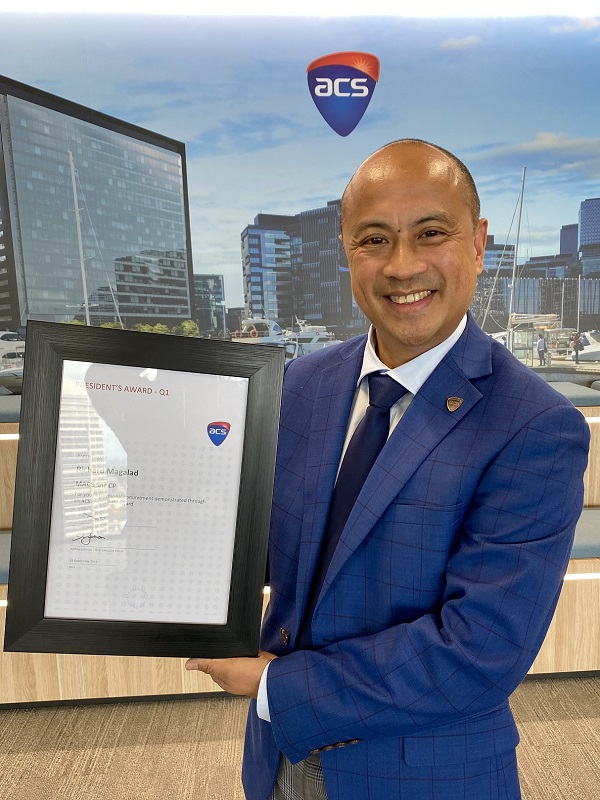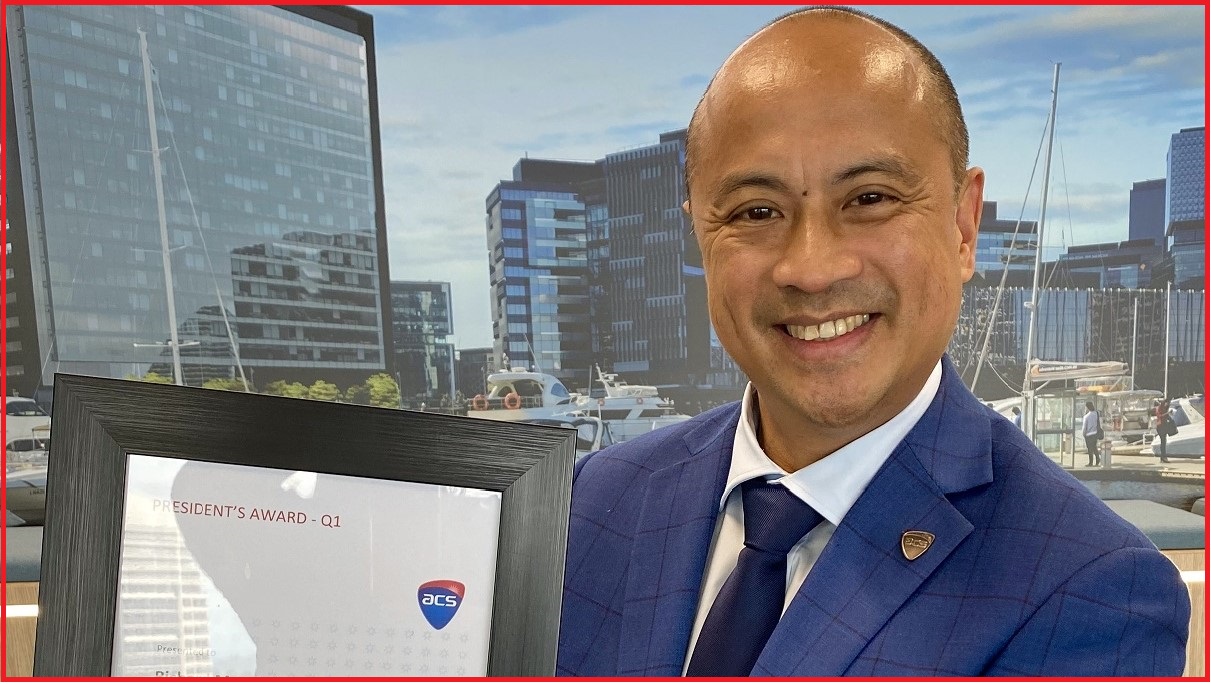ACS congratulates Richard Magalad on his President’s Award win for Q1, 2019.
We chat to Richard about his time in the ICT industry and what this accolade means to him.
Information Age: Why and how did you get into tech?
Richard: It was the 80s when I was an obsessed teenager playing Pacman and Galaga until one day, I saw for the first time a beautiful black IBM PC in the ‘Computer Room’ at my year 9 high school.
There were in fact 10 computers shared among 400 students.
My curious mind wondered “Could I design my own game so I could keep playing non-stop at home for free?” It turned out creating a computer game was a lot harder than first thought, so I gave up with that idea, but I learned a lot about programming. Then when it was time to do my first programming project, I took to it like a duck to water.
My family owned a Caltex service station before immigrating to Australia, so as a young kid I already knew a lot about trucks and cars, spare parts and servicing. This led to my first software program at age 15 then at age 19 whilst studying Swinburne I revived this project, which I later sold to several car yards. My TAFE and university IT studies led to networking and I soon discovered I was a much better networking engineer than I was a programmer.
My first full-time job at State Bank Victoria (Commonwealth Bank) introduced me to Oracle, COBOL and IBM mainframes. I stayed until I started my IT networking firm at age 24. I’ve never looked back and have since employed over 25 staff throughout the years.
Information Age: What has been the highlight of your career so far?
Richard: Spanning nearly 30-years in this industry there are so many highlights to remember, so I will limit it to the top three:
Thomas Cook foreign exchange currency calculator: I was a network administrator for this client just before Y2K when an opportunity came to develop a program that would calculate daily exchange rates. This was eventually used by Thomas Cook to buy and sell foreign currency at all Bank of Melbourne branches and then later to ANZ Bank.
Mining project in the Outback in 2013: For several years the internal IT staff struggled to provide adequate communications, so I was tasked to solve this problem. With a couple of satellite providers, Telstra and enterprise-grade equipment, we managed to deliver the right solution. The quality of life for our mining crew improved significantly when they could voice call and video-chat with friends and family every day. It may sound trivial but when you’re working alone in a remote area for several weeks, that ‘link’ back home keeps you grounded and makes you happier.
Australian Tax Office project: This was the largest project I’ve ever been involved with that affected thousands of endpoints. After working my normal 9 to 5 job, I still had to work from 5pm until midnight for several weeks with a team of 20 other IT professionals from a telco, large IT consulting firm and several contractors. Super complicated, physically and mentally exhausting, but an awesome experience that I’m proud to have been a part of.

Richard Magalad with his President's Award. Photo: Supplied
Information Age: How has the industry changed since you started?
Richard: The technology of 2020 still has the same logic of 1990 but the results from the technology is simply mind-blowing. If you told me in the year 2000 that I would one day have the entire world’s map on my phone including satellite images, I would have replied, “there is no way you could fit that amount of computing power in a small device. Not in my life time.” Miniaturisation will continue and our mobile devices will simply ‘pack a punch’ more and more.
We already use semi-autonomous vehicles today with automatic breaking, active cruise control and lane management, so more and more development will bring us closer to the nirvana of fully-autonomous vehicles. Then I can play my retro Pacman and Galaga on my iPad whilst my car drives me to work.
Information Age: Which areas of tech are you keeping an eye out for in 2020?
Richard: AI will be overhyped, but eventually the world will correct itself, and the true power and use of AI will come to the fore. I’m not smart enough to predict that, but I know it will be amazing.
Blockchain lost its shine after the crypto-currencies plunged, so now we’ve sobered up from trading Bitcoins, we should start looking at real-life benefits, such as the use of smart contracts.
Quantum Computing development should continue as more distributed processing is made possible by Cloud providers Google, Azure, et al, followed by hardware juggernauts IBM and NTT. This will not only crunch numbers so quick that existing encryption will be broken, but new Quantum encryption will be born.
Information Age: What are your thoughts on being recognised with this ACS President’s Award? What does it mean to you?
Richard: I’ve been an ACS member since 1999 and elected into the Victorian Branch Executive Committee in 2018. I used that platform to promote not just ACS but the Aussie tech industry.
I enjoyed the expert panels and keynotes I delivered, especially when it came to motivating the young minds – that’s very rewarding. Receiving the President’s Award was a great honour and I was proud as punch to be recognised for doing something I enjoy doing.
I hope my award will motivate others to give back to our industry and be proud to be involved with ACS.









